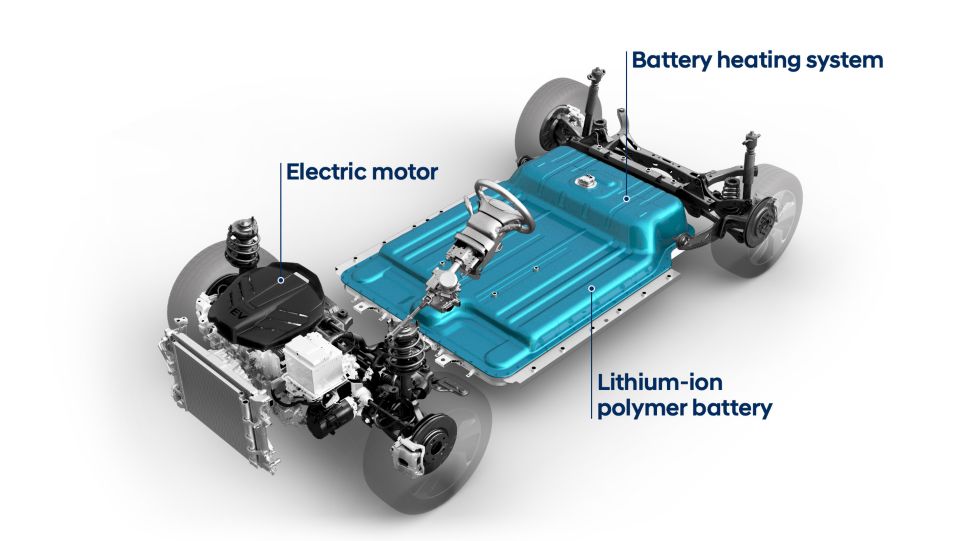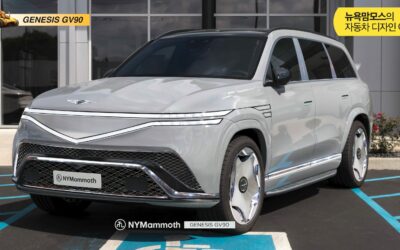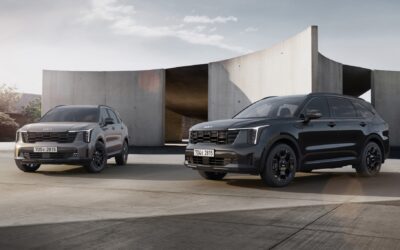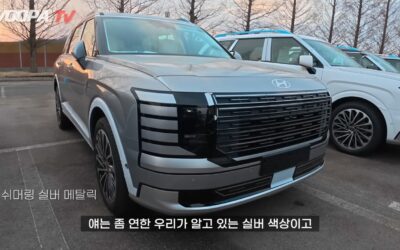Hyundai Motor Company is set to add a hybrid model to the Genesis lineup, but it won’t be a regular hybrid. In a statement made by Jang Jae-hoon, president of Hyundai Motor, at the New York Motor Show in March, he highlighted the company’s forward-thinking strategy: “We plan to respond to the market in a way that goes beyond hybrids, not just Genesis hybrids (HEVs).”
Genesis Hybrid to Debut in 2026
The ambitious plan will see the introduction of Hyundai’s first Genesis hybrid car by the end of 2026. This new hybrid powertrain represents a significant shift from the existing internal combustion and electric vehicle models that Genesis currently offers. Unlike the traditional hybrid systems used in Hyundai and Kia vehicles, this new method aims to significantly increase mileage using an engine, marking its first application in the Genesis lineup. Consequently, Hyundai’s previous strategy to transition all Genesis models to electric vehicles by 2025 will need to be revised.
Development of the Genesis GV70 Hybrid
Industry insiders revealed on the 30th that Hyundai Motor has initiated a project (JKa) to develop a mid-sized Genesis GV70 hybrid model specifically for the North American market. The target for mass production has been set for December 2026.
This new GV70 model will be the first within the Hyundai Motor Group to employ the “Electric Vehicle (EREV)” method rather than the traditional HEV system. Unlike conventional hybrids where the engine is the primary power source, the EREV system functions primarily as a battery-powered electric vehicle. The internal combustion engine in the EREV system serves to extend the driving range by charging the battery, rather than directly driving the vehicle. Although the EREV has emissions and is classified as a hybrid, it offers the efficiency and driving experience closer to that of an electric vehicle.

Strategic Advantages of the EREV System
Hyundai’s decision to use the EREV system for the GV70 model allows the company to respond swiftly to evolving market demands. By retaining the existing structure of the GV70, which is also available as an electric vehicle, Hyundai can minimize production changes and costs. The integration of a small engine with reduced battery capacity presents a cost-effective alternative to pure electric vehicles.
The rear-wheel drive characteristic of the Genesis also influenced this strategic move. Developing rear-wheel-drive hybrids from scratch would be both time-consuming and costly. By leveraging the existing rear-wheel drive system, Hyundai can quickly adapt to market conditions, where there is a growing demand for hybrids amid fluctuating electric vehicle popularity. The EREV system aligns with the luxury branding of Genesis by delivering extended range and maintaining the superior acceleration and smooth driving experience of electric vehicles.
Production Plans and Market Impact
The new GV70 model is expected to be produced at Hyundai Motor Group Meta Plant America (HMGMA) in Georgia. Initially established as a factory dedicated to electric vehicles, the plant is now also preparing for hybrid production in response to the rising demand. During a conference call in the first quarter of this year, Hyundai confirmed these preparations, highlighting the company’s agility in adapting to market trends.
An industry source noted, “Hyundai Motor is expected to overcome electric vehicle cavitation (temporary demand stagnation) with Genesis applying the EREV method, a type of hybrid. After evaluating market acceptance with the GV70, the EREV system could potentially expand to popular brands such as Hyundai and Kia.”
Conclusion
Hyundai Motor Company’s innovative approach to hybrid technology with the Genesis GV70 is poised to set new standards in the automotive industry. By combining the strengths of electric and internal combustion engines, Hyundai aims to offer consumers an enhanced driving experience while adapting to market dynamics. The introduction of the EREV system in the Genesis lineup underscores Hyundai’s commitment to innovation and sustainability, promising a bright future for hybrid vehicles.






